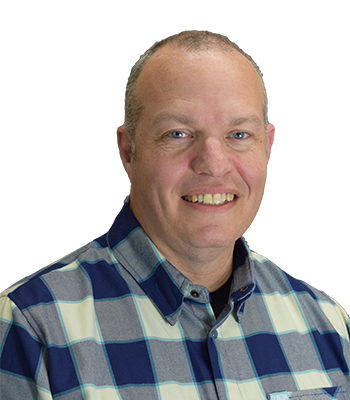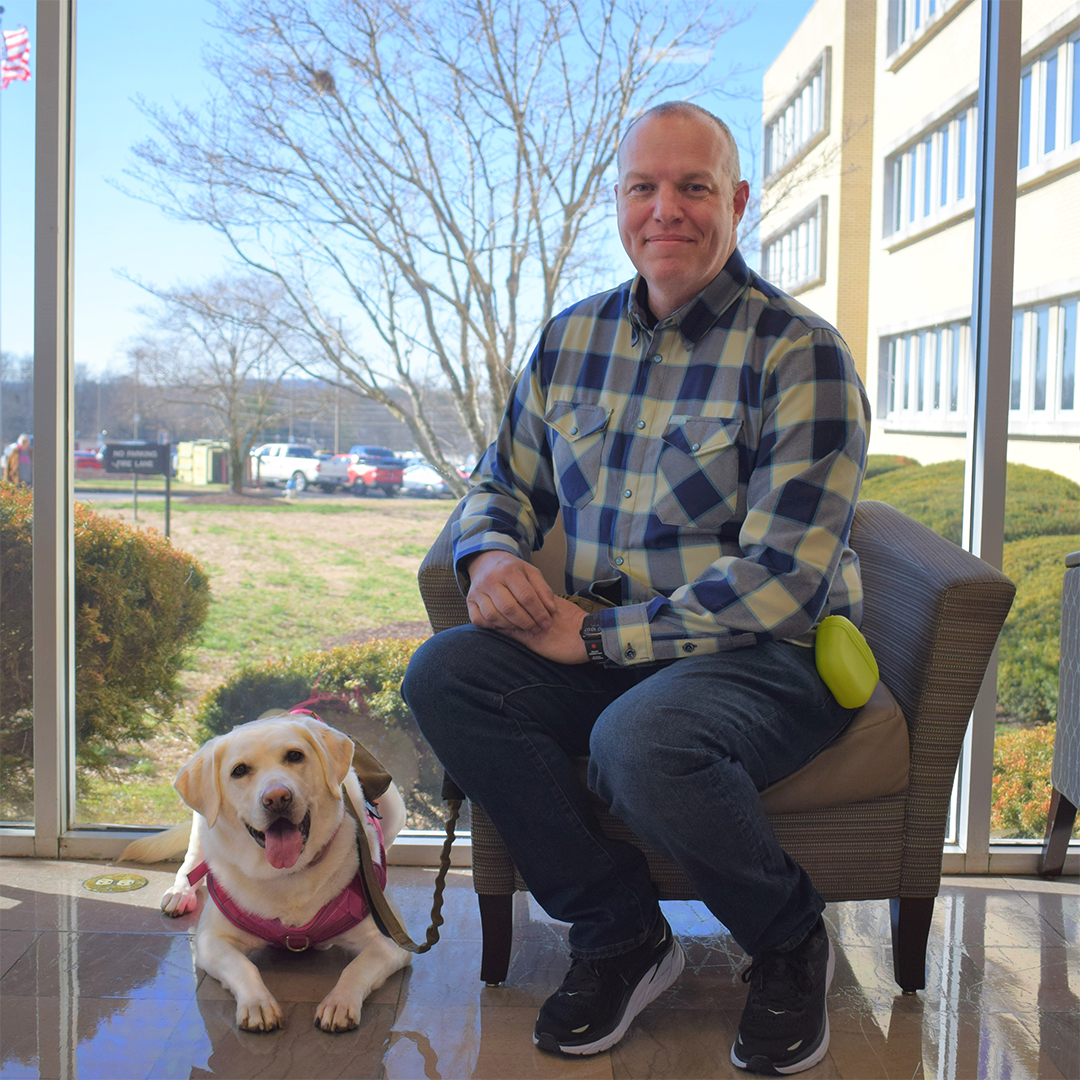Heart disease wasn’t really something Adam Andrews thought much about until a family member’s incident caught his attention. Then, things changed quickly for the Air Force veteran.
Luckily, he had a partner close to home with Maury Regional Health (MRH).
 Andrews first became aware of a history of heart disease in his family when he was in his early 40s. A family member had a massive heart attack, and out of precaution, his father went to see a cardiologist to make sure everything was ship shape. He was immediately taken in for a bypass procedure due to blocked arteries.
Andrews first became aware of a history of heart disease in his family when he was in his early 40s. A family member had a massive heart attack, and out of precaution, his father went to see a cardiologist to make sure everything was ship shape. He was immediately taken in for a bypass procedure due to blocked arteries.
“Prior to that, I didn’t really think much about heart disease,” Andrews said. “I was relatively healthy and in my early 40s, so I didn’t think I had anything to worry about. At that point, I knew I needed to be cognizant of this and take care of everything.”
On April 16, 2021, Andrews, 45 at the time, woke up early in the morning with tightness in his chest. He immediately knew something was wrong and told his wife they needed to get to the hospital.
When he arrived in the emergency department at Maury Regional Medical Center (MRMC), he explained his symptoms to the medical team, who quickly determined he was having a heart attack. He was treated and taken to the cardiac catheterization laboratory for an angiogram to identify the blockages. The angiogram determined the blockages were too severe for stents, and a quadruple bypass surgery would be required.
Following the surgery, he started cardiac rehabilitation at MRMC and completed all three phases, then entered the cardiac wellness program in December 2021, which he still participates in.
“The nurses and everyone at MRH have been great,” Andrews said. “I can’t speak highly enough about the care they’ve given me through this process.”
In MRMC’s cardiac rehabilitation program, which is certified by the American Association of Cardiovascular and Pulmonary Rehabilitation, patients exercise under the supervision of a cardiologist while their heart activity is monitored. Exercise levels are gradually increased to help strengthen the heart.
“I’m telling you, when I first went into cardiac rehab, I couldn’t lift anything and could hardly even walk,” Andrews said. “Now, I’m walking at a fast pace and lifting heavier weights. With their help, I’ve been able to get myself to the best point I can. That’s great both physically and mentally.”
Along with the wellness program, Andrews regularly sees cardiologist Joel Phares, MD, and heart failure specialist Mamatha Pinninti, MBBS, who are both affiliated with Vanderbilt Heart-Columbia.
Andrews lives in Columbia just a few minutes from Maury Regional Medical Center, so being able to see his specialists close to home has been a significant benefit. It was also crucial last year when an angiogram performed in Maury Regional Medical Center’s cardiac catheterization laboratory showed that a couple of his bypass grafts had failed. Upon the discovery, he was able to receive immediate care.
“Having access to my doctors right here in Columbia and not having to go to Nashville for that, it’s literally a lifesaver for me,” Andrews said. “For this small town to be represented by a hospital system with the resources Maury Regional has, that’s priceless.”
Through his journey, Andrews has learned a lot about heart health and proper care. He’s changed his diet and exercise habits, and he constantly tries to reduce stress both at work and at home. He’s also working to train his service dog, Aspen, to recognize cardiac events.
Andrews tries to tell others going through similar circumstances to stay positive.
“I think the big message is to stay positive,” he said. “It really is just as much mental as it is physical. If you feel defeated, you’re going to be defeated. If you want to get back to any semblance of your former self, you have to stay positive and work hard.”
If you or someone around you is showing signs of a heart attack, call 911 immediately. Warning signs of a heart attack include chest discomfort (tightness, pressure or pain), discomfort in other parts of the body (arm, jaw, back or neck), shortness of breath, unusual fatigue and nausea, light-headedness or cold sweat.
Maury Regional Medical Center is recognized as a Chest Pain Center with PCI by the American College of Cardiology and holds certification in the treatment of heart failure from The Joint Commission. In the medical center’s newly renovated, state-of-the-art cardiac catheterization lab, expert cardiologists on the medical staff work in tandem with a highly skilled and experienced team to open blocked vessels in real time. Together, they utilize cutting-edge technology to investigate heart conditions and perform a number of interventional procedures, including angioplasty and stenting as well as pacemaker and defibrillator implants.
Learn more at MauryRegional.com/heart.